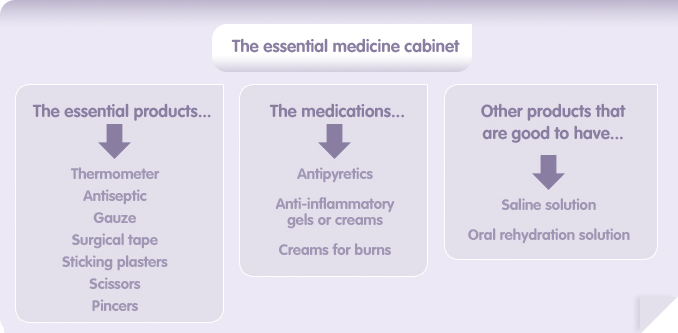Advice
The use of medicine is in itself a complicated subject, but in the case of a baby this is even more so. For this reason you will have to be stricter in its use and follow the instructions your paediatrician gives you and your pharmacist's recommendations. It is essential that you carefully read the directions and the label, as well as learn from other sources about the medicine you are about to give to your baby.
What should you know about the medicine you intend to give to your child?
1. Its name, as well as its active ingredients and auxiliary agents in order to avoid possible allergies.
2. The category and indications (antihistamine, cough suppressant, etc).
3. Any warnings (in what cases not to use the medication, when to stop taking it, and so on)
4. Instructions and dosage (how to administer the medicine, in what quantities, and for how long).
5. Whether it requires special storage (such as keeping it in the fridge).
Basic advice for the use of medicine:
- Remember that A higher dosage does not mean A better curing effect. Do not increase the dosage unless your paediatrician tells you to.
- Do not use medicine without prescription, and do not extend the treatment.
- You should Never give your child adult medicine.
- Be careful with dosage: If the label gives you a dosage in teaspoons, instead of using a teaspoon for measuring you should use a dosage spoon or a cup with teaspoon markings to get the quantities right. It is also important not to get mixes up with the concepts teaspoonful and spoonful.
- Also check If there are any interactions with food and drink. Read the instructions and the label.
- Don't tell you child that the medicine is a sweet as a way of making it sound more attractive. She might want more or take an additional dose if for a brief moment you take your eyes off her.
And in case of doubt, seek advice from your pediatrician or pharmacist.
The essential medicine cabinet
The medicine cabinet should serve the purpose of storing medicine that is useful in the case of an emergency. For this reason, make sure the pharmaceutical products have not expired and place the cabinet in a cool and dry area where your child cannot reach.
